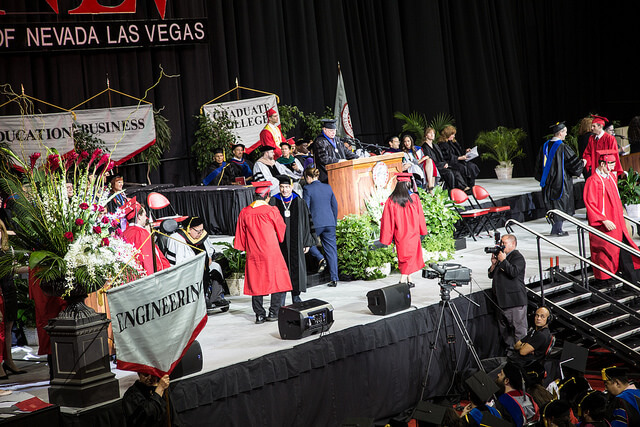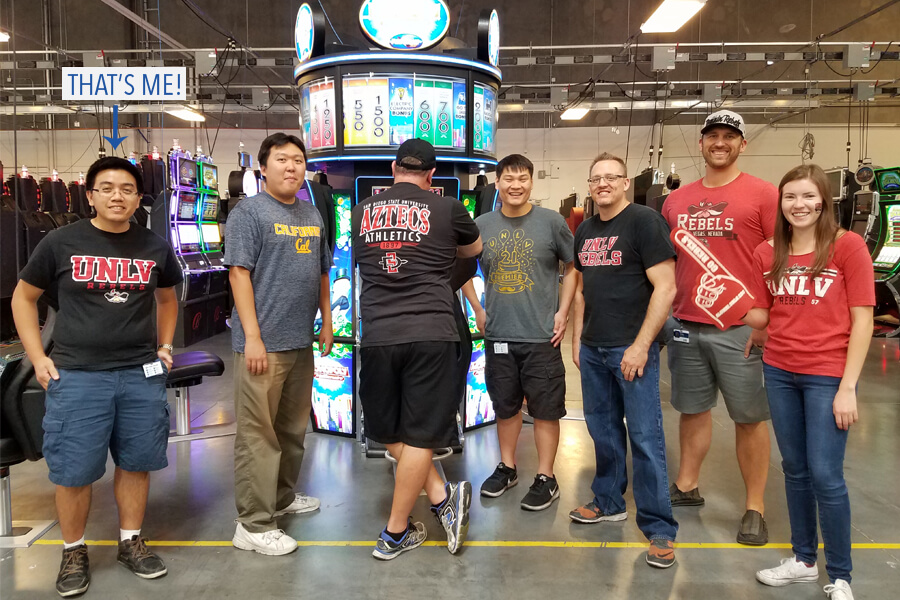Picture a bright sunny day in Las Vegas where it’s near the end of your college years and it’s time for graduation.

Luckily on that day, I was inside a building for an award ceremony, safe from the Vegas heat. On that day, I received both an exciting and horrific call. A call that I expected, but also dreaded since it involved my job prospects after graduation. Let’s jump back a bit so I can build empathy with you of what was going on through the life of a soon-to-be graduate.
A MONTH BEFORE
During the last month before my graduation, I was filling out job applications, using job search engines, utilizing my college’s career services, attending career fairs, and updating both my LinkedIn and my resume. As I went through the requirements for the jobs I wanted to apply for, about 90% of them asked for x amount of years in the industry. As an undergraduate, I was dismayed about the amount of experience they were asking for, and I started to wish I could go back in time to get that experience in the form of an internship. At that time, I was interning at a local nonprofit and if you look at my resume, it looks like a resume for a business student, and not a computer science student. I was also receiving replies from companies denying me the opportunity to prove myself because I lacked the experience required. Fortunately, the call that I received would change my life.
THE PHONE CALL
Jumping to the phone call, the first words from the recruiter mentioned was an in-person interview. The moment the recruiter said that, I knew I could ace it due to the experience East Tech provided me through PBL projects and through involvement with CTSOs. The next words from the recruiter were the announcement of a technical interview. My heart dropped at the words from that because in my field, a technical interview could mean a myriad of items. It was also my first technical interview. My mind raced with questions from what programming language would be expected to code to what areas the interview would cover. Luckily, the recruiter gave some insight and after a couple of follow-up questions, so I had an idea of what to review. Fast forward past the interview, I got the job and now work at a company where I can move up the corporate ladder.

HERE ARE SOME OF MY TIPS TO GET THROUGH A TECHNICAL INTERVIEW FROM MY EXPERIENCE:
1 ) Look at the job description you are applying for and think of what technical knowledge they will ask for. If the job calls for experience in coding, expect a coding challenge at the interview.
2 ) Talk to your peers who are already in the field and get an idea of what they might ask.
3) Research articles that provide tips of what questions might be expected for an incoming graduate in that field.
4) Come up with a plan to prepare for the interview. As a new graduate, it might be tempting to push the idea of studying until the last minute and enjoy the freedom of a break. Remember that it’s important to not look too nervous at the interview or else it will impact your body language.
5) Don’t freak out. If you’re in a field that involves different topics like computer science, figure out what topics you need to review and what topics you can “brush up on”.
6) Don’t ignore the face-to-face interview portion. It could help in the overall score of your interview. Knowledge is important, but they are also looking for what soft skills you have.
7) If you finish a technical exam early, let them know. I finished my technical test early and notified the interviewer who seemed impressed.
8) Make sure to bring pieces of scratch paper in case they only give you a test paper. This will make you look prepared and if you’re like me who needs to write things down before writing the final answer, it’ll help to keep your test paper legible.
9) Research your interviewer. If they give you the name of the interviewer, it doesn’t hurt to search the interviewer on LinkedIn and get an idea of their background. It can be helpful to see where their expertise is in. Then when they ask you, “Do you have any questions,” you can ask questions about their background and look knowledgeable in doing so.
10) Be confident! If they ask you why you solved a certain problem a certain way, be confident with your answer and explain why you did it in such a way.
Lastly, make sure to end on a good note and not look discouraged if you feel that you didn’t do so well on the technical portion. It’s important to “fake it until you make it” and project a confident, prospective employee of that company.



